North Carolina War Between the States Sesquicentennial
North Carolina Unionists (and Secessionists) Speak
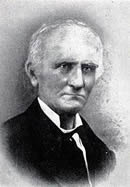
“A severely critical observer of events in Raleigh at this time was Jonathan Worth, a State senator from
Randolph County. Fifty-eight years old, possessed of substantial interests as planter, business man and lawyer,
with no personal prejudices against the “peculiar institution,” he understood, if he did not share, the Quaker traditions
of his ancestry, and many of his political admirers and follows were of that faith.
His political creed he described as that of a Henry Clay Whig. Secession he regarded “as the seed of death in
any confederation,” quite as sure to be fatal to the new Confederacy then in process of formation as to the old Union. “
(North Carolina, The Old North State and the New, Archibald Henderson, Vol. II, Lewis Publishing, 1941)
John McQueen of Robeson County:
US Congressman John McQueen of Robeson County had advocated Southern resistance to Northern tariff
schemes, and in the late 1850’s was convinced that secession was inevitable. He thought that the South should
risk the consequences of independence rather than abandon what he considered to be
Southern rights and liberties within the Union.
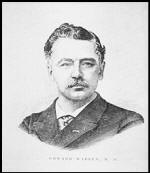
Edward Jenner Warren of Little Washington:
Born in Wardsboro, Vermont in 1824, Warren moved to North Carolina in 1847
after graduation from Dartmouth and was admitted to the bar in 1848.
From a Federalist-Whig background and himself and old-line Whig,
he initially opposed secession. Yet at the same time he
believed that Congress should protect Southern rights.
When he was running for a seat in the State Constitutional Convention in
February 1861 (which was not held because North Carolinians voted
against its convening), he, as he explained it, “advocated the experiment
of a peaceable and honorable adjustment of our difficulties upon the basis
of constitutional guarantees acceptable to the South,”
such as the Crittenden Compromise.
But by May, 1861, as a candidate for the North Carolina Constitutional Convention
that voted for secession, he had come to believe that compromise was no longer possible.
He argued that the North had demonstrated that it was “united in support
of the infamous policy of Lincoln. They intend our subjugation….War exists.”
Therefore, he contended that “duty, self-respect, safety, [and] liberty” required
North Carolina to “dissolve her connection with the Federal Government.”
Consistent with these beliefs, Warren, as a member of the 1861
convention in May, voted for secession.”
(Dictionary of North Carolina Biography, William S. Powell, UNC Press, 1986)
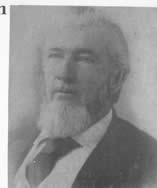
Thomas McDowell of Bladen County:
Unionist Thomas McDowell of Bladen County was opposed to secession until Lincoln’s call for troops
after Fort Sumter’s fall, and as a member of the May Constitutional Convention he voted for the political
independence of North Carolina
The venerable William A. Graham was a staunch Unionist who urged North Carolinians to rely on the
Constitution as a sufficient guarantor of their rights, and helped defeat the secession convention of February 1861.
After Lincoln’s call for 75,000 volunteers to subjugate South Carolina, he accepted the inevitable and was elected
to represent Orange County in May 1861. While upholding the right of revolution as the appropriate
response to tyranny, he cast his vote for self-determination.
Francis Burton Craige of Salisbury:
An editor, lawyer and congressman, after 1860 he favored the secession of the South
and in March, 1861 attended the Goldsboro convention of the Southern Rights party,
which called for North Carolina to leave the Union. Craige left Congress in 1861 and was
elected delegate to North Carolina’s Secession Convention at Raleigh. At the request
of Governor John W. Ellis, he introduced an ordinance that formally repealed the
State’s ratification of the federal Constitution.
(Dictionary of North Carolina Biography, William S. Powell, UNC Press, 1986)
William Lander of Lincoln County:
Born in County Tipperary in Ireland, Lander was elected to the North Carolina
House of Commons for one term in 1852, and later served as county solicitor.
At the Charleston Democratic Convention in 1860, he joined Southern bolters
to nominate the Breckinridge-Lane ticket. In October 1860, professed that the
election of Lincoln would not be sufficient to cause for secession, but that
subsequent events might precipitate it. By early 1861 Lander became convinced
of the necessity of secession and as a member of the
May Convention voted to leave the Union.
Alfred Moore Waddell of New Hanover County:
Waddell was born in 1834 at Hillsborough, the great-grandson of Colonel Hugh Waddell,
Brigadier General Francis Nash, and U. S. Supreme Court Justice Alfred Moore,
three of North Carolina’s leading Patriots during the American Revolution. After obtaining
his education, he moved to Wilmington, North Carolina to practice law.
He wrote in “Some Memories of My Life” that “being a young and enthusiastic Union man,
and extremely desirous to do all that was in my power for its preservation, I bought
The Daily Herald and, in May, 1860, abandoning the practice of law, devoted myself
to the publication of that paper for a year prior to the war. Shortly after assuming that
position I was made an alternate delegate to the National Convention which met at
Baltimore and nominated John Bell, of Tennessee, for President,
and Edward Everett, of Massachusetts, for Vice President.
On the evening of April 10, 1861, the telegraph operator at the Wilmington office confidentially
communicated to me at the Herald office a telegram that had just passed through from
General Beauregard at Charleston to Jefferson Davis at Richmond, saying that he
would open fire on Fort Sumter at 4AM, if Major Anderson refused to surrender.
Thereupon I hurried to the old “Manchester Depot” opposite the Market Street dock….and
caught the train for Charleston as it was passing out. Springing from the [rushing] train
[at Charleston]…we entered our hotel and ascended the roof…half wrapped in
the morning mist, lay Sumter, and high above its parapets, fluttering in the morning
breeze floated proudly and defiantly the stars and stripes.
In a moment afterwards just above it there was a sudden red flash, and a column
of smoke, followed by an explosion, and opposite of James Island, a corresponding
puff floated away on the breeze, and I realized with emotions indescribable that
I was looking upon a civil war among my countrymen.”
(Some Memories of My Life, A. M. Waddell, Edwards & Broughton, 1908, pp. 53-54)
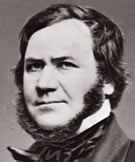
John Adams Gilmer of Guilford County:
Lincoln as president-elect had ample opportunity to tour the South to better understand the region,
as well as chastise the fanatic abolitionists who fueled the secessionist impulses of the South.
He did neither, and after his unconstitutional call for troops to war upon a State, gave North Carolina
Unionists no alternative but to join their Southern brethren in a more perfect union.
Impatient But Determined Northern Economic Forces Cause War:
“Appealing to his constituents on a platform which included a protective tariff, internal improvements, free
homesteads to free-soilers, and limiting slavery to its current borders, Abraham Lincoln won the presidency
by pulling in the electoral votes of all the Northern States with the exception of New Jersey. In ten Southern
States he pulled no votes at all and consequently had no electors from that section. The national voting
performance indicated that Lincoln drew considerably fewer votes than the total number of ballots
cast for his three rivals, Douglas, Breckinridge, and Bell.
In searching for solutions to the troubling problems following the national elections, alert citizens wanted
to know more about the kind of program the new president intended to implement during his administration.
To effectively counter secession arguments, Southern Unionists needed answers to vital questions – answers
only the president-elect could give.
Reflecting the anxiety of many was North Carolina Congressman John A. Gilmer’s letter of
December 10, 1860, to Lincoln….[that] before assuming his high office, should “give the people of the
United States the views and opinions you now entertain on certain public questions now so seriously
distract[ing] the country.”
Lincoln, in his return letter….chose to continue his policy of silence relative to his pending administration.
Giving assurance he did not intend to interfere with slavery in the District of Columbia, [and] seemed to
imply flexibility “on everything except the territorial question, and on this he would not yield.”
To those citizens both North and South who were thoroughly convinced that slavery extension existed more
in theory than in fact, the president-elect’s position bordered on absurdity. In truth, the plantation system was
not destined to expand into any existing territories of the United States. The territory of New Mexico, for ten years
open to settlement by slaveholders, recorded not one slave in the census of 1860. Colorado and Nevada were
likewise without slaves. A few bondage blacks were to be found in Utah, and for the same year, census
statistics indicated that two slaves resided in all of Kansas.
Thoughtful observers knew it would be a tragic mistake for Lincoln to proceed without a thorough understanding
of the present South, reflecting the conditions brought on by a decade of intense and often bitter sectional
rivalry with the North. Republican leaders, convinced as they were that an inevitable climax to the slavery
issue was drawing near, surely would not overlook the strong likelihood that resolution was not attainable
without secession and war.
Also, might certain essential observations have escaped Lincoln in his firm belief that there still remained
throughout the South a strong residue of Union support and loyalty? In truth, Union sentiment in the region
was much weaker than it had been in years past. The loyalty that had made North Carolinians proud to
send James K. Polk to the presidency had now been supplanted by new and disturbing sensations.
For reasons valid or otherwise, there was furthermore a persistent suspicion that selfish and sinister forces
were behind or perhaps a part of the Northern anti-slavery movement. If an irrepressible conflict lay ahead, as
contended by some, how accurate was it to conclude that black people held in forced labor were the major
cause of this impending crisis?
Tariffs revised upward, a national government favorable to the industrialization and capital investments so
essential to expanding industry and commerce – these and related matters occupied the attention of
Northern entrepreneurs and political leaders. Could it be that when spokesmen for these special interests
lashed out critically against slavery, very often their zeal was intended not so much to liberate unfortunate
black people as to obliterate the political power of the region in which they resided?
Was not the South – represented by its phalanx of representatives in Congress, by its dominance of the
Supreme Court and almost continuous control of the executive branch, and by its agriculturally-oriented society….
the real target of North attacks? Until this establishment was dismantled, impatient but determined Northern
economic forces would continue to be held in check. So why not strike at the South’s Achilles’ heel by
mounting a convincing humanitarian campaign against its “peculiar” institution?”
(Matt W. Ransom, Confederate General,, C. C. Marlow, McFarland & Company, 1996, pp. 3-5)
Gilmer -- Reluctant Secessionist
"When the national Whig party disintegrated, Gilmer, along with future governor Zebulon Vance
and other prominent North Carolina Whigs joined the American or Know-Nothing party.
In 1856 he ran as the Know-Nothing candidate for North Carolina governor, promoting
a partially State-owned bank and upholding his party’s anti-foreigner and anti-Catholic
principles as the grounds on which honest men might unite
and save the country from sectional conflicts.
In the crisis of 1861, Gilmer tried his best to head off secession and war. Because
the Secessionists made much of Abraham Lincoln’s supposed Abolitionism, he
wrote to Lincoln (10 December 1860) and asked him for a public statement
clarifying his views on slavery. This the president-elect declined to do, though
Lincoln considered Gilmer for a future cabinet position.
When Lincoln sent his Fort Sumter relief expedition, Gilmer was “deeply distressed”
at the “madness” that now prevailed. On the 18th of April in the Guilford County
courthouse, he stood with other Greensboro leaders in calling upon the local
militia company, the Guilford Grays, to defend the State against any and all invaders.
When the North Carolina secession convention finally met the following month,
Gilmer attended as a delegate and joined in the unanimous vote for the secession ordinance."
(Dictionary of North Carolina Biography, William S. Powell, UNC Press, 1986)
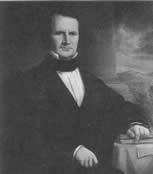
William Alexander Graham of Orange County:
Graham served as North Carolina governor 1844 through 1848, and was appointed
Secretary of the Navy by President Millard Fillmore in July 1850. To both North and
South he advocated moderation, advising the North that faithful execution of the
Fugitive Slave Law was essential to the perpetuation of the Union. In 1852 he ran
as Winfield Scott’s vice-presidential candidate under the Whig banner.
After the election of Lincoln, he urged North Carolinians to rely upon the Constitution
as a sufficient guarantor of their rights in the Union, advising that there would be time
enough to seek proper remedies after an overt, illegal action by the national
government. However, after Lincoln’s Fort Sumter expedition and the call for
troops to invade South Carolina, he accepted the inevitable,
declaring that “blood was thicker than water.”
Though he abhorred secession, he was elected to represent Orange County in the
Constitutional Convention of May 1861, and cast his vote for withdrawal from the Union.
(Dictionary of North Carolina Biography, William S. Powell, UNC Press, 1986)
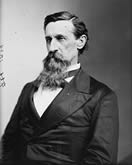
James Madison Leach of Randolph County:
A lawyer by vocation, Leach was elected as a Whig to Congress and served from 1859 to 1861,
opposing secession and both spoke and voted against it. Leach happened to be in the
mountains speaking against secession when he heard of Lincoln’s call on
North Carolina for troops to invade South Carolina, and returned home
immediately to raise a company of more than a hundred men to fight for the South.
(Dictionary of North Carolina Biography, William S. Powell, UNC Press, 1986)
Abraham Watkins Venable of Granville County:
Born in Virginia in 1799 and educated at Princeton, he moved to North Carolina in 1829 and
settled in Granville county. On 22 February 1853, with suitable remarks, he delivered
a block of North Carolina marble to the Washington Monument Society
for the monument to the first president.
During the winter of 1860-61 Venable campaigned for a secession convention, arguing
that the North would not dare to oppose dissolution of the Union. After the
Ordinance of Secession was adopted in May 1861, he was elected to the
Provisional Congress of the Confederate States.
(Dictionary of North Carolina Biography, William S. Powell, UNC Press, 1986)
James Walker Osborne of Mecklenburg County:
A lawyer, politician and businessman, Osborne became a Democrat after the dissolution
of the Whig party in 1856. In 1859 Governor John W. Ellis appointed him judge of the
Superior Court, and office he held for six years. In May 1861, Osborne served
as a delegate from Mecklenburg to the Secession Convention, where he
voted for the secession of North Carolina from the Union.
(Dictionary of North Carolina Biography, William S. Powell, UNC Press, 1986)
Rufus Yancey McAden of Alamance County:
Born in Caswell county, McAden was a member of a distinguished North Carolina family
of Scottish ancestry. He entered politics in 1860 as a Whig candidate for the State legislature
bid was defeated by only thirteen votes. In early 1861 he was elected as a Union candidate
to the State constitutional convention, which did not meet as North Carolinians defeated
this early attempt at secession.
(Dictionary of North Carolina Biography, William S. Powell, UNC Press, 1986)

George Edmund Badger of Craven County:
A superior court judge, Secretary of the Navy, and United States Senator, Badger was born
in 1795 at New Bern his life beginning near the end of Washington’s life. After a long
life in politics, he was an elector at large on the Bell-Everett ticket in the election
of 1860 and as a delegate from Wake county to
North Carolina’s Secession Convention in May 1861.
Throughout the sectional controversies of 1860 and early 1861, Badger maintained
his position as a Union man, but when Lincoln called for troops to invade the South,
he joined with those favoring separation from the North. When the convention met
in Raleigh on 20 May 1861, Badger introduced “An Ordinance Declaring the Separation
of North Carolina from the United States of America.”
The ordinance was based upon the right of revolution, carefully avoiding any reference
to the theory of secession, a political concept he never acknowledged. Badger’s
proposal was rejected by the convention, which adopted a simple ordinance of
secession from the Union introduced by Burton Craige.
(Dictionary of North Carolina Biography, William S. Powell, UNC Press, 1986)
Francis Alexander Thornton of Warren County:
Born in Warren county in 1797, Thornton was a planter and legislator who was first elected
to represent his county in the House of Commons in 1821. His mother was a maternal aunt
of the venerable North Carolinian, Nathaniel Macon. He represented Warren in the
North Carolina Secession Convention of 1861 and cast his vote to leave the Union.
Kemp Battle, who met Thornton at the secession convention, described him
as “a neighbor of Nat. Macon, a mild-mannered, gentlemanly, venerable man….
tho’ he was a fire-eating Secessionist.”
(Dictionary of North Carolina Biography, William S. Powell, UNC Press, 1986)
Kemp Battle's Clear Analysis:
“Kemp Battle gave as clear an analysis as anyone of the situation in North Carolina after the firing on Fort Sumter.
He, like [Zebulon] Vance, had been “a violent Union man” before Lincoln’s call for troops. He felt Lincoln’s election
was a misfortune, theoretically at least, but other elections would come and with them perhaps fair legislation for
the South. He did think the Lincoln administration was wanting in a conciliatory attitude and “should not have declared
war against the seceding States, which the call for 75,000 troops amounted to.” He recalled that President Jackson
had refused to use troops to enforce a Supreme Court decision, and the wisdom of his moderation had
later been established.
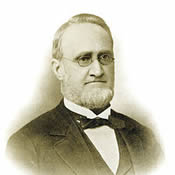
When Lincoln issued his call for volunteers, the North Carolina unionists, who had hoped for a cordial hand from
the Washington administration, felt ignored and snubbed. With Northern troops coming down, they had to stand
with their own people. Battle explained it thus: “It is better to go out together, even if we are whipped back together.
If we do not go with the South we shall certainly have civil war at home. That will be much worse than fighting the North.”
(Zeb Vance, Champion of Personal Freedom, Bobbs-Merrill Company, 1965, pp. 104-105)
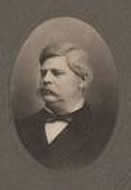
Zebulon Vance on Lincoln’s Call For Troops:
“I was canvassing for the Union with all my strength; I was addressing a large and excited crowd, large
numbers of whom were armed, and literally had my hand extended upward in pleading for peace and the
Union of our Fathers, when the telegraphic news was announced of the firing on Sumter and the
President’s call for 75,000 volunteers.
When my hand came down from that impassioned gesticulation, it fell slowly and sadly by the side
of a secessionist. I immediately, with altered voice and manner, called upon the assembled multitude
to volunteer not to fight against, but for South Carolina. I said, if war must come, I preferred to be with
my own people. if we had to shed blood I preferred to shed Northern rather than Southern blood.
If we had to slay I had rather slay strangers than my own kindred and neighbors; and that it was better,
whether right or wrong, that communities and States should get together and face the horrors of war in
a body---sharing a common fate, rather than endure unspeakable calamities of internecine strife.”
Jonathan Worth Again:
Future governor, Quaker and avid Unionist Jonathan Worth believed that his State was driven out of the Union
by the actions of the Lincoln administration, which was trying to force North Carolinians to not only violate the
US Constitution, but also wage war on a neighboring State. On May 30th, he wrote:
“We are in the midst of war and revolution. North Carolina would have stood by the Union but for
the conduct of the national administration which for folly and simplicity exceeds anything in modern history.”
Writing on December 7, 1861, Worth concluded:
“This State is a unit against the Lincoln Government. It is one great military camp. Some ten thousand
troops are in the field. The old Union men are as determined as the original secessionists. The State is totally
alienated from the Lincoln Government and will fight to extermination before they will reunite with the North.”
Copyright 2011, North Carolina War Between the States Sesquicentennial Commission